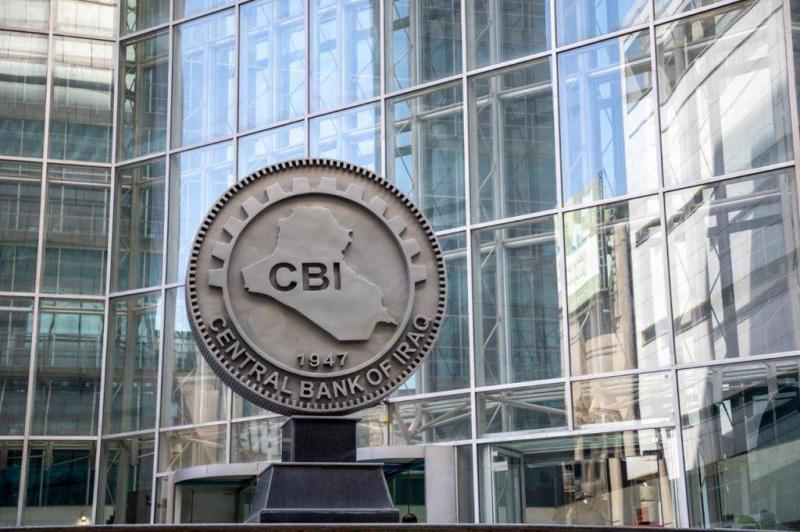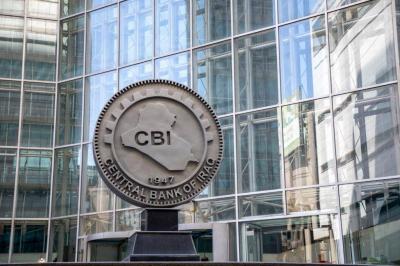A senior official from the U.S. Treasury Department emphasized that the Iraqi central bank "must address the ongoing risks arising from the misuse of the dollar in Iraqi commercial banks to avoid new punitive measures targeting the financial sector in the country," citing "fraud, money laundering, and Iran's evasion of sanctions." In July, the United States barred 14 Iraqi banks from conducting transactions in dollars as part of a broader campaign against the illegal use of the U.S. currency. The official, who spoke on condition of anonymity, noted that there are still other Iraqi banks operating with risks that "must be addressed," despite the campaign.
With reserves exceeding $100 billion in the United States, Iraq heavily relies on Washington's goodwill to ensure that its oil revenues and funds are not subject to U.S. sanctions. The official added that the actions taken in July were based on clear indicators of illegal financial activity. He explained that the alleged crimes being investigated by the Treasury include money laundering, bribery, extortion, embezzlement, and fraud.
The governor of the Iraqi central bank has stated that the country is committed to implementing stricter regulatory rules for the financial sector and combating dollar smuggling. The Iraqi central bank did not immediately respond to a request for comment on Thursday. Iraq has more than 70 private banks, a relatively new feature in a sector that was almost entirely state-dominated until the fall of Saddam Hussein after the U.S. invasion in 2003. Of these banks, slightly less than a third are on the U.S. blacklist.
The official told Reuters in Baghdad, "I choose to focus on the banks that still have access, and I see that the risks continue in them." He added, "It would be great if the central bank seized the opportunity to address the issue directly, which could eliminate the need for more actions (in the U.S.)." The Iraqi government came to power backed by strong Iranian-supported parties, and therefore cannot afford to antagonize Tehran or provoke the armed factions and groups with entrenched interests in the informal Iraqi economy. The Iranian Foreign Ministry has yet to respond to a request for comment.
The 14 banks urged the Iraqi government to correct the imposed actions and stated that they are operating in accordance with regulations. The official noted that the government of Iraqi Prime Minister Muhammad Shia al-Sudani, appointed in October 2022, has been cooperative and has made "progress," which was "not necessarily the case" ten to fifteen years ago. The U.S. Treasury official indicated that there are still "special interest" owners who are comfortable with the status quo and may stir unrest in the event of change but did not disclose the identities of these interests.
**"Widespread Theft"**
U.S. measures have focused on the so-called dollar sale auction in Iraq, where the central bank requests dollars from the Federal Reserve (the U.S. central bank) and then sells them to commercial banks, which in turn sell them to companies in the import-dependent economy. Between $200 million to $250 million is sold daily at the auction. Before the U.S. tightened measures, groups obtained large sums illegally, including through presenting forged invoices. The official stated that "large sums" are subsequently smuggled into neighboring countries, including Iran.
Iraqi officials have indicated that the auction system, a feature of the informal economy, was also used by thousands of small companies that needed dollars but were not officially registered with the state, thus providing false information. The official stressed that tightening reviews targets not only Iran but is part of a broader campaign for the Iraqi financial system to operate "normally" and to combat numerous financial crimes. He added, "We are concerned about that (evasion of sanctions), but we also need to address theft, fraud, fake identities, and widespread ghost payrolls."
The Iraqi central bank has reported that when the country began tightening measures through a new online platform in January, which includes details about end beneficiaries, nearly 80 percent of transactions were rejected, but this rate is now around 15 percent. However, Iraqi officials say the measures have led to a dollar shortage, causing the Iraqi dinar to decline to over 1,500 against the U.S. currency in the unofficial market in recent months, which is 15 percent lower than the official rate of 1,320. The U.S. Treasury official noted that the initially high rejection rate was largely associated with a "learning curve" regarding how to fill out forms and issues, such as software glitches, which are now being addressed.




